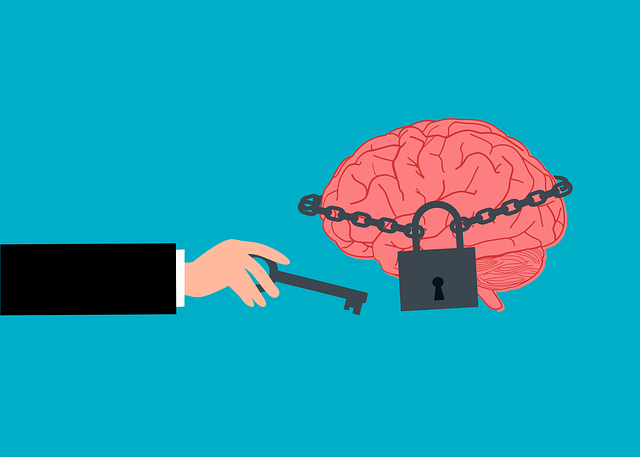Empowering Healing: Positive Thinking Exercises for Louisville Therapists-Clinicians
Positive thinking exercises in Louisville therapy practices empower therapists and clinicians by red…….
In the dynamic landscape of mental health care, specialized therapeutic approaches have emerged as game-changers, catering to the unique needs of therapists and clinicians. Among these, Louisville Therapy for Therapists-Clinicians Therapy has garnered significant attention for its innovative techniques and holistic approach. This article aims to provide an in-depth exploration of this therapy type, its global impact, economic considerations, technological advancements, regulatory framework, challenges, case studies, and future prospects. By delving into these aspects, we will uncover the multifaceted nature of Louisville Therapy and its role in shaping the field of mental health professional support.
Definition and Core Components:
Louisville Therapy for Therapists-Clinicians (LTTCT) is a specialized therapeutic practice designed to address the unique challenges faced by mental health professionals, including therapists and clinicians. It incorporates elements from various therapeutic modalities such as cognitive-behavioral therapy (CBT), mindfulness practices, and solution-focused approaches to create a comprehensive treatment plan. The core components include individual and group therapy sessions, peer support groups, educational workshops, and self-care strategies tailored to the specific needs of therapists.
Historical Context:
The concept of LTTCT evolved in response to growing recognition of the high-stress nature of the therapeutic profession. Early efforts focused on providing peer support networks and basic training in stress management. Over time, the approach has evolved to include more structured interventions, drawing from successful models in occupational health and wellness programs. Today, LTTCT is a well-established modality, with numerous clinics and organizations worldwide dedicated to its practice.
Significance and Scope:
Louisville Therapy plays a crucial role in promoting resilience, mitigating burnout, and enhancing the overall well-being of therapists and clinicians. By addressing issues such as work-life balance, professional boundaries, and emotional regulation, it enables mental health professionals to maintain high standards of care and sustain their careers. LTTCT is inclusive, catering to therapists from various backgrounds, including psychotherapy, counseling, social work, and psychiatry.
International Influence:
Louisville Therapy has transcended geographical boundaries, finding resonance worldwide. Its principles have been adapted and integrated into mental health systems across diverse countries, reflecting a growing recognition of the need for specialized support for therapists. For instance, Europe has seen a rise in LTTCT programs, with countries like Germany and the UK implementing structured therapy models inspired by Louisville’s approach.
Regional Trends:
Market Dynamics:
The global therapy market, driven by growing mental health awareness and increasing demand for specialized services, presents a promising landscape for Louisville Therapy. The market is characterized by:
Investment Patterns:
Economic Impact:
Louisville Therapy contributes to economic systems by:
Digital Tools and Platforms:
Technology plays a pivotal role in modernizing Louisville Therapy:
Impact on Practice:
Technological innovations have led to:
Future Potential:
As technology continues to evolve:
Key Policies and Frameworks:
The regulatory landscape surrounding Louisville Therapy varies across jurisdictions but generally includes:
Regulatory Influence:
Main Issues:
Proposed Solutions:
Case Study 1: Urban Therapy Collective (UTC)
Location: New York City, USA
Overview: UTC is a non-profit organization offering Louisville Therapy services to therapists in the bustling urban environment of NYC. Their program includes individual therapy sessions, peer support groups focused on city-specific challenges, and workshops on self-care and professional boundaries.
Success Factors:
Case Study 2: Desert Sage Therapy Network (DSTN)
Location: Phoenix, Arizona, USA
Overview: DSTN provides Louisville Therapy services tailored to therapists living and working in the desert Southwest region. Their approach includes outdoor therapy sessions, cultural sensitivity training, and support groups focused on heat-related issues and remote practice challenges.
Key Achievements:
Growth Areas:
Emerging Trends:
Strategic Considerations:
Louisville Therapy for Therapists-Clinicians Therapy represents a significant advancement in mental health professional support, addressing critical challenges faced by therapists worldwide. Its global impact, technological advancements, and policy frameworks demonstrate its growing importance. By overcoming criticisms and learning from successful case studies, the field can continue to refine and expand LTTCT. The future prospects for Louisville Therapy are promising, with potential for growth, innovation, and enhanced access to life-changing support for mental health professionals.
Q: What is the primary goal of Louisville Therapy for Therapists?
A: The primary goal is to provide specialized therapy and support services tailored to the unique needs of therapists and clinicians, helping them manage stress, maintain professional well-being, and enhance their ability to support clients effectively.
Q: How does LTTCT differ from traditional therapy?
A: LTTCT focuses specifically on therapists, addressing issues related to their work and personal lives. It incorporates elements from various therapeutic modalities to create a comprehensive approach, distinct from general or client-centric therapy practices.
Q: Is Louisville Therapy only for experienced therapists?
A: No, LTTCT is inclusive and caters to therapists at all stages of their careers. It provides support and guidance to help new therapists navigate the challenges of beginning their practice, as well as seasoned professionals dealing with burnout or career transitions.
Q: Can technology completely replace the need for Louisville Therapy?
A: While technology offers valuable tools and resources, it cannot fully replace human connection and personalized therapy. LTTCT combines digital advancements with human interaction, providing a holistic approach to therapist wellness.
Q: How can therapists ensure they receive quality Louisville Therapy?
A: Therapists should look for programs accredited by recognized mental health organizations. Peer reviews, client testimonials, and evidence-based practices are essential indicators of quality LTTCT services.

Positive thinking exercises in Louisville therapy practices empower therapists and clinicians by red…….